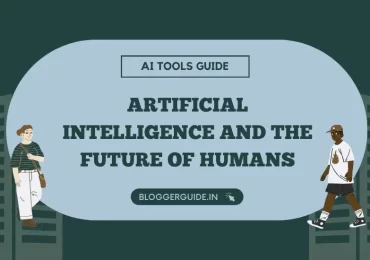As we stand on the cusp of this AI revolution, it's both exciting and a little daunting to consider the possibilities. Imagine a world where diseases are diagnosed before symptoms appear, where traffic flows smoothly without a single traffic light, and where education is tailored to each student's unique learning style. This isn't science fiction – it's the world AI is creating right now. Let's dive into how AI is transforming various sectors and what this means for our future.
Table of contents
AI in Healthcare
AI is making waves in the healthcare industry, promising to improve patient outcomes and streamline medical processes. One of the most exciting applications is in early disease detection. AI algorithms can analyze medical images with incredible accuracy, often spotting potential issues that human eyes might miss. For instance, AI-powered systems are now capable of detecting early signs of breast cancer in mammograms, potentially saving countless lives through early intervention.
But it's not just about diagnosis. AI is also transforming treatment plans. By analyzing vast amounts of patient data, AI can help doctors create personalized treatment strategies that take into account a patient's unique genetic makeup, lifestyle, and medical history. This level of personalization was simply impossible before the advent of AI.
I remember talking to a friend who works as an oncologist. She told me about a patient whose cancer had stumped the entire medical team. They turned to an AI system that analyzed the patient's genetic profile and suggested a treatment that hadn't been considered. The treatment worked, and the patient went into remission. It's stories like these that really bring home the transformative power of AI in healthcare.
AI in Education
The education sector is another area where AI is making significant strides. Traditional one-size-fits-all approaches to education are being replaced by personalized learning experiences tailored to each student's needs, abilities, and learning style.
AI-powered tutoring systems can adapt in real-time to a student's progress, offering additional explanations or more challenging material as needed. This means that students who are struggling with a concept can get the extra help they need, while those who grasp ideas quickly can move on to more advanced topics without getting bored.
Moreover, AI is helping teachers by automating administrative tasks like grading multiple-choice tests or tracking attendance. This frees up valuable time for teachers to focus on what they do best: inspiring and guiding their students.
As a parent, I've seen firsthand how AI-powered educational apps have helped my daughter improve her math skills. The app adjusts the difficulty level based on her performance, keeping her engaged and motivated. It's like having a personal tutor available 24/7!
AI in Transportation
The transportation industry is on the brink of a major transformation, thanks to AI. Self-driving cars, once the stuff of science fiction, are becoming a reality. These vehicles use AI to navigate roads, interpret traffic signs, and make split-second decisions to ensure passenger safety.
But it's not just about personal vehicles. AI is also revolutionizing public transportation. Smart traffic management systems powered by AI can analyze traffic patterns in real-time, adjusting signal timings to reduce congestion and improve traffic flow. This not only saves time for commuters but also reduces carbon emissions by minimizing idle time on the roads.
In the logistics sector, AI is optimizing delivery routes, reducing fuel consumption, and improving overall efficiency. Companies like Amazon are using AI to predict which products will be in demand in specific areas, allowing them to stock nearby warehouses accordingly and reduce delivery times.
I recently took a ride in a semi-autonomous vehicle, and it was an eye-opening experience. The car smoothly navigated through heavy traffic, maintaining a safe distance from other vehicles and even suggesting an alternate route to avoid an accident ahead. It made me realize that the future of transportation is not just about getting from point A to point B, but about doing so in the safest and most efficient way possible.
AI in Environmental Conservation
One of the most pressing challenges of our time is climate change, and AI is emerging as a powerful tool in our fight against it. AI algorithms can analyze satellite imagery to monitor deforestation, track wildlife populations, and predict natural disasters with unprecedented accuracy.
In the energy sector, AI is optimizing renewable energy systems. For instance, AI can predict weather patterns to maximize the efficiency of solar and wind farms. It can also manage smart grids, balancing energy supply and demand in real-time to reduce waste and improve overall energy efficiency.
AI is also playing a crucial role in conservation efforts. Researchers are using AI to analyze animal sounds in the rainforest, helping them track endangered species and combat poaching. In the oceans, AI-powered robots are monitoring coral reefs, providing valuable data on the health of these crucial ecosystems.
During a recent trip to a national park, I saw firsthand how rangers were using AI-powered drones to monitor wildlife populations and detect potential threats like wildfires. It was incredible to see how technology was being used to protect and preserve our natural world.
Conclusion
As we look to the future, it's clear that AI will continue to play an increasingly important role in shaping our world. From healthcare to education, transportation to environmental conservation, AI is not just transforming industries – it's transforming lives. The potential benefits are enormous, from saving lives through early disease detection to creating a more sustainable future for our planet.
However, as we embrace this AI-driven future, we must also be mindful of the challenges it presents. Issues of privacy, job displacement, and the ethical use of AI are all important considerations that we must address as a society. The key will be to harness the power of AI in a way that benefits humanity as a whole, ensuring that the transformations it brings are positive ones that improve our lives and our world.









